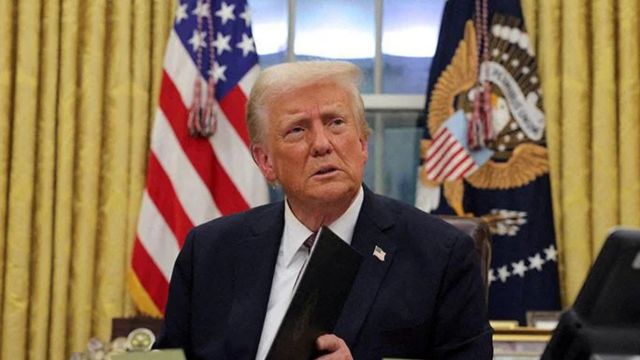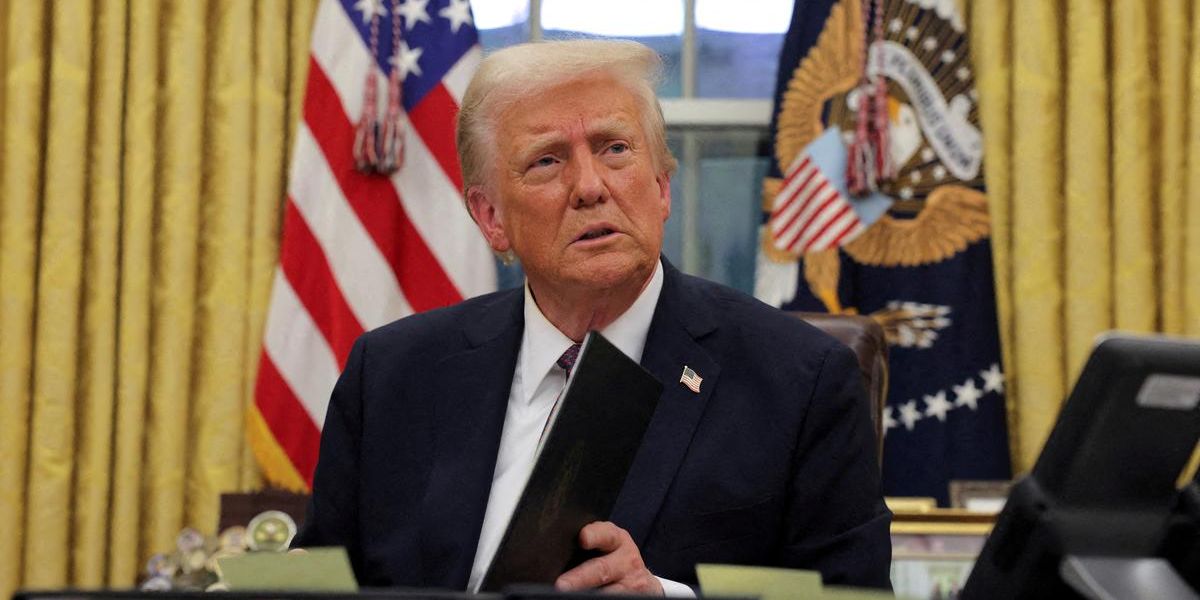Fuel costs, which might increase significantly starting next month as a result of a new proposal by President Donald Trump, are among the most urgent issues facing Americans.
According to comments made by Karoline Leavitt, the new White House press secretary, this measure is anticipated to go into effect on Sunday, February 2, and if it does, it may have a big impact on the U.S. oil market.
Which Trump policy has the potential to raise fuel prices?
It involves applying 25% taxes to imports from Canada. One of his most contentious campaign concepts and the subject of US foreign policy discussions.
Since Canada supplies over half of the nation’s total crude oil imports, it is the largest foreign supplier of crude oil, which explains the fuel surge. Many refineries in the United States are designed to process heavy Canadian crude oil.
If tariffs increase the price of this oil, refineries would probably boost the price of gasoline, passing the increased cost on to consumers.

If Canadian imports are reduced to avoid taxes and other, more distant countries are used instead, the extra transportation costs may also affect the final product’s economic value.
Five strategies to reduce fuel consumption in the face of a possible rise
Even if the measure hasn’t been implemented yet and the price increase won’t be confirmed until it is, it might be beneficial to think about ways to cut back on your gasoline consumption in order to deal with this possible financial impact.
- Driving efficiently: Maintaining a steady speed and avoiding abrupt accelerations and stops are two habits that help reduce fuel consumption. Using cruise control on highways and avoiding excessive engine revolutions can make a big difference.
- Keep the car in good shape: Regular maintenance, such as changing the oil, checking tire pressure, and making sure the engine is running correctly, can maximize fuel efficiency. A well-maintained vehicle uses less fuel.
Travel planning: By scheduling your travels to avoid long commutes or severe traffic, you can reduce your gas use. Additionally, taking public transportation or carpooling might be a smart option for those who rely on their vehicles for a living. - Avoid overloading the vehicle: By just transporting what is necessary and avoiding large, superfluous loads, you can improve fuel efficiency. It requires more gasoline to move the heavier it is.
- Make the most of air conditioning: Air-conditioned cars consume more petroleum. Try to use the air conditioner as little as possible on cool days and instead open the windows to let fresh air into the car.
Trump Signs Laken Riley Act, Launching Next Phase of Immigration Crackdown
Trump offers incentives for US federal workers to leave their jobs
US President Donald Trump has offered federal employees the option to quit while still receiving their salaries for a further eight months, in a major effort to reorganize and shrink the size of the US government.
In an email, his administration asked almost all government employees to respond by February 6th regarding their interest in taking part in a “deferred resignation” program that would oblige them to quit their jobs by the end of September.
According to the US Office of Personnel Management (OPM), those who agree to the agreement are not required to work unless there are special circumstances, and those who want to resign will not be held accountable for Trump’s insistence that they serve out the duration of their contracts.
Those who received the email are now uncertain as a result. Senior Trump officials told U.S. media that the idea may save the government as much as $100 billion (£80 billion).
Trump Administration Freezes Federal Funding for Public Loans, Grants, and Aid
Trump’s human resources department, OPM, made the offer in a statement along with other impending changes, such mandating that most employees work in their offices five days a week. The action has been condemned by critics.
The president of the American Federation of Government Employees (AFGE) union cautioned in a letter to US media that this “purging” may have far-reaching, unforeseen consequences that will cause chaos for Americans who depend on a functional federal government.




